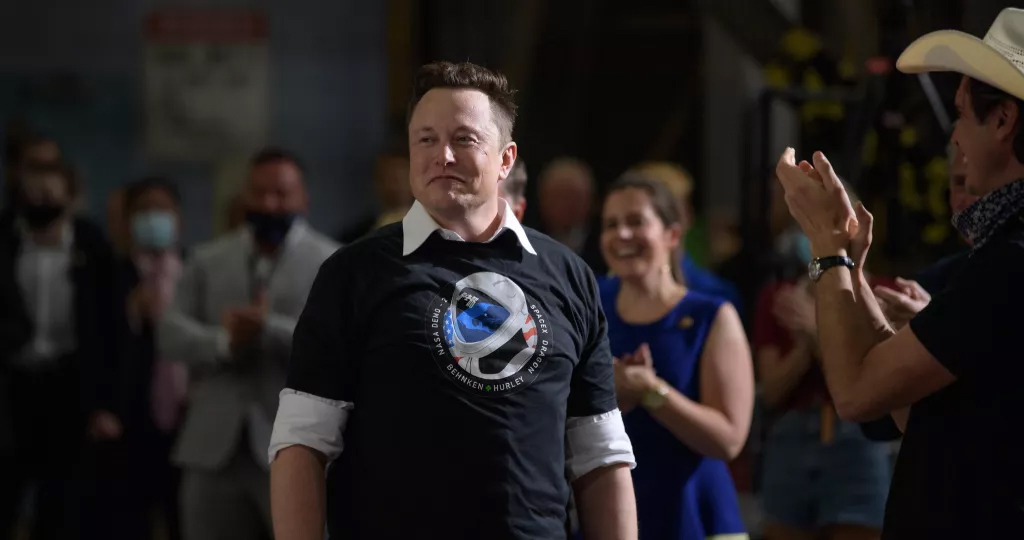Get the world’s most fascinating discoveries delivered straight to your inbox.
You are now subscribed
Your newsletter sign-up was successful
Want to add more newsletters?
Join the club
Get full access to premium articles, exclusive features and a growing list of member rewards.
Russian space chief Dmitry Rogozin has apparently threatened Elon Musk, but the SpaceX founder and CEO doesn't seem too bothered.
On Sunday (May 8), Musk posted on Twitter a note that he said Rogozin, the head of Russia's federal space agency Roscosmos, had sent out to Russian media. The note claimed that equipment for SpaceX's Starlink satellite-internet system had been delivered to Ukrainian marines and "militants of the Nazi Azov battalion" by the U.S. military.
"Elon Musk, thus, is involved in supplying the fascist forces in Ukraine with military communication equipment," Rogozin wrote, according to an English translation that Musk posted. (He also tweeted out a Russian version.) "And for this, Elon, you will be held accountable like an adult — no matter how much you'll play the fool."
Related: Elon Musk says SpaceX's Starlink satellite internet service is active in Ukraine with more terminals on the way
Live updates: Ukraine invasion's impacts on space exploration
This sounds very much like a threat, as Musk acknowledged in a follow-up tweet on Sunday.
"If I die under mysterious circumstances, it's been nice knowin ya," he wrote.
Musk's mom, Maye, didn't appreciate that glib response, tweeting, "That's not funny" along with two angry-face emojis. The billionaire entrepreneur responded, "Sorry! I will do my best to stay alive." (It was Mother's Day, after all.)
Get the world’s most fascinating discoveries delivered straight to your inbox.
It doesn't seem like Musk is terribly concerned about his safety, which isn't surprising given that Rogozin is prone to bluster and hyperbole. For example, the Roscosmos chief has repeatedly suggested that Russia may leave the International Space Station (ISS) program if sanctions imposed in the wake of the invasion aren't lifted, but it continues to be more or less business as usual on the orbiting lab.
And Musk and Rogozin have traded barbs before. In 2014, for example, Rogozin remarked that the United States should use a trampoline to get its astronauts to the ISS — a reference to the fact that the nation was, at the time, completely dependent on Russian Soyuz spacecraft for crewed orbital missions. (Rogozin, who was Russia's deputy prime minister at the time, was mad about sanctions imposed shortly after the nation invaded and annexed Crimea, which had been Ukrainian territory.)
In May 2020, SpaceX ended that reliance when it launched two NASA astronauts to the ISS on its landmark Demo-2 mission. Just after that liftoff, Musk delivered a riposte to Rogozin six years in the making: "The trampoline is working!"
SpaceX, Musk and the United States Agency for International Development have been open about sending Starlink terminals to Ukraine, to help the country maintain some of its communications infrastructure during the ongoing invasion by Russia. Ukrainian officials asked for such equipment in late February, shortly after the invasion began.
Mike Wall is the author of "Out There" (Grand Central Publishing, 2018; illustrated by Karl Tate), a book about the search for alien life. Follow him on Twitter @michaeldwall. Follow us on Twitter @Spacedotcom or on Facebook.

 Live Science Plus
Live Science Plus












